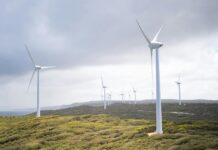This year’s Spring Budget takes place on Wednesday 15 March, and in our sector, thoughts are turning to how the UK green economy may benefit.
As ever, the Spring Budget will be political to a degree. But it’s also hoped that in challenging times, with the economy facing up to recession, high energy costs and geopolitical uncertainty, some help may be on store to push UK green business in the right direction.
Levelling up
edie’s analysis notes that Chancellor Jeremy Hunt has stated supporting low-carbon industries, along with tech and life sciences, will be crucial to ensuring a more innovative and stable UK economy in the long-term and to levelling up.
Hunt delivered a speech at Bloomberg’s European headquarters in London towards the end of January. He said along with digital technology and life sciences, low-carbon sectors such as renewables and nuclear energies are among these industries. So there’s one hint at Budgetary emphasis to come.
He also spoke of a $1trn market opportunity between now and 2030, and emphasised the fact that the UK currently hosts the world’s largest offshore wind farm, Hornsea 2, and that it is targeting 50GW of offshore wind capacity by 2030.
He highlighted the government’s recent decision to give the green light for the Sizewell C nuclear power plant and to take a larger stake, as it works to bridge the ‘nuclear gap’ and ensure that 25 per cent of UK electricity generation is nuclear by mid-century.
Smart money might therefore be on lots of cash for renewables and nuclear come March.
Is the UK in recession?
Clearly, forefront in Government minds will be whether the UK is technically falling into a recession as the Spring Budget lands.
The BBC says the UK narrowly avoided falling into recession in 2022, new figures show, after the economy saw zero growth between October and December.
This is despite a sharp 0.5 per cent fall in economic output during December, partly due to strike action, the Office for National Statistics (ONS) said.
Chancellor Jeremy Hunt said the figures showed “underlying resilience” but said “we are not out of the woods”.
Indeed, the woods appear treacherous. The Bank of England still expects the UK to enter recession this year. The BBC also notes the UK is still the only G7 country where the economy is smaller than pre-pandemic levels.
The Confederation of British Industry (CBI) is just one organisation all too aware of this, especially with its mandate to speak on behalf of seven million UK businesspeople.
It says the Chancellor must unleash green markets and energy resilience, supporting firms to be more energy efficient as they prepare for next winter, and ensuring the UK can grow its energy security and compete in the race for new green markets and technologies.
It is also after lasting productivity growth by unlocking business investment through the tax system – replacing the super-deduction, either by introducing full expensing for capital investment, or setting out a roadmap towards doing so.
Specifically, it wants support for firms to enhance their energy efficiency and reduce bills and emissions by extending the Industrial Energy Transformation Fund (IETF) from 2025 to 2030. Its cost estimation on this is £63m per year from 2024/25.
More from the CBI
CBI is also keen for businesses investing in capital assets to get a treat for reducing their carbon emissions or improve energy efficiency – including solar panels, more energy efficient heating and cooling including insulation, electric vehicles and charging infrastructure, and investment in production lines for any green technology.
This could be a capital allowance ‘green uplift’ rate at least 20 per cent above the standard rate. This will help to green UK business investment from the beginning of supply chains through to end users, it says.
It also wants new funding, which should be allocated from the £22bn R&D budget to follow recommendations from the recent Net Zero Review to inform technologies selection, providing certainty on R&D funding to support the Net Zero transition.
This might support greater R&D into the use of CCUS, hydrogen, offshore wind and battery development.
Departmental alignment
Logically, one would expect budgetary planning to align with Sunak’s new departmental delineations.
EDIE says the Department for Energy Security and Net Zero’s top aim should be to make net zero lawful, then harness the social and economic benefits of the low-carbon energy transition.
Next aims should be the Energy Security Bill and fixing energy markets, then energy efficiency. Stating the obvious, all this work will need money.
“Whilst the decarbonisation of our energy supplies is essential to getting to net zero emissions, reaching net zero is an economy-wide transition,” the Aldersgate Group’s executive director Nick Molho told edie.
“It is important that the creation of the DESNZ does not obscure the fact that achieving net zero will require business model and infrastructure changes across the whole economy – this must be reflected in how responsibilities are split across government departments and how they interact with one another.”
In conclusion
It feels like wins for energy efficiency, nuclear and renewables are to hand in the Spring Budget. Time will tell. That and alignment, in an organised way, with net zero strategy.
Polling suggests the Conservatives have little time to fix the economy. What can the Spring Budget do for both their and indeed the UK’s sustainable ambitions?













